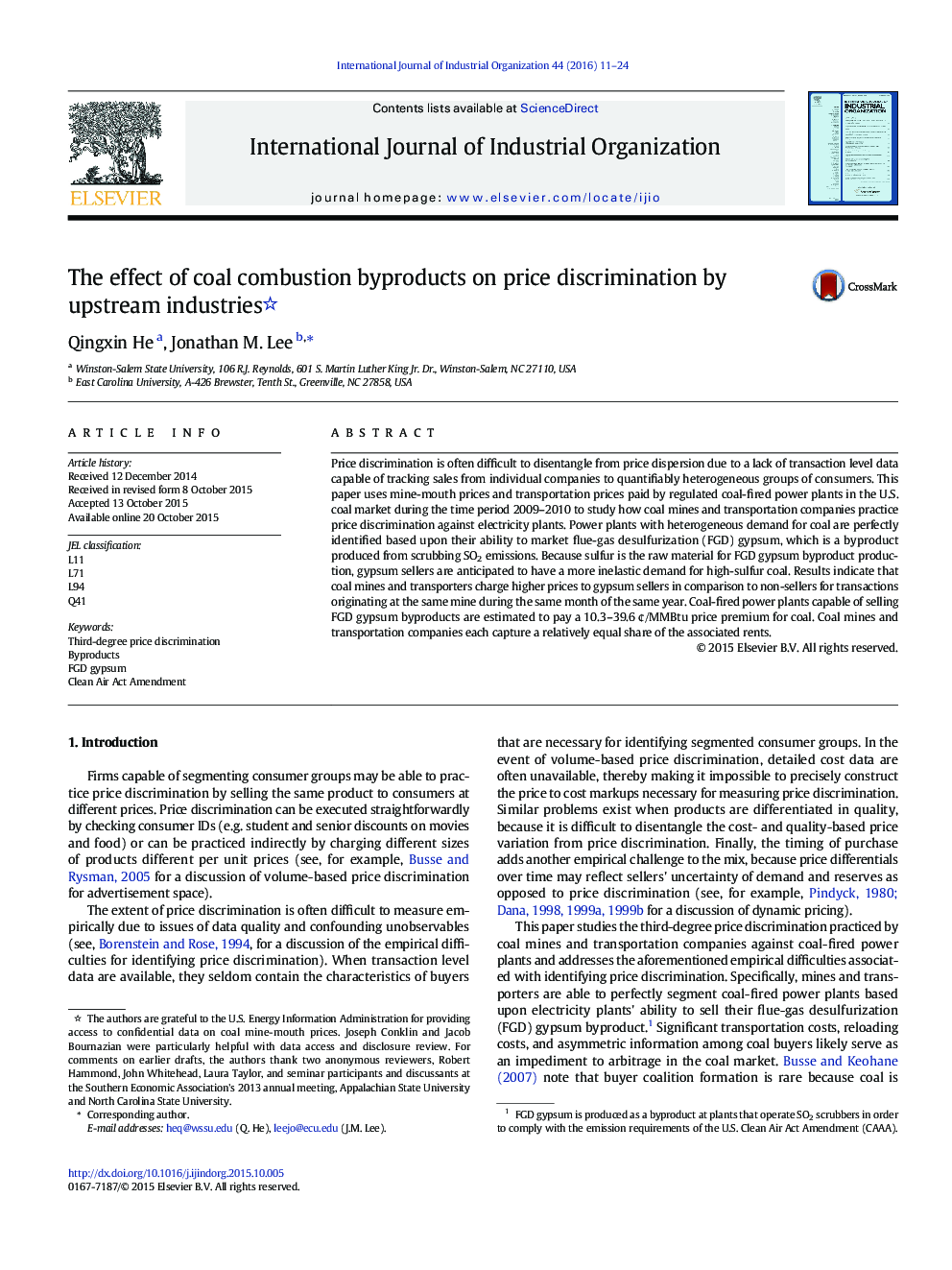| Article ID | Journal | Published Year | Pages | File Type |
|---|---|---|---|---|
| 5077917 | International Journal of Industrial Organization | 2016 | 14 Pages |
Abstract
Price discrimination is often difficult to disentangle from price dispersion due to a lack of transaction level data capable of tracking sales from individual companies to quantifiably heterogeneous groups of consumers. This paper uses mine-mouth prices and transportation prices paid by regulated coal-fired power plants in the U.S. coal market during the time period 2009-2010 to study how coal mines and transportation companies practice price discrimination against electricity plants. Power plants with heterogeneous demand for coal are perfectly identified based upon their ability to market flue-gas desulfurization (FGD) gypsum, which is a byproduct produced from scrubbing SO2 emissions. Because sulfur is the raw material for FGD gypsum byproduct production, gypsum sellers are anticipated to have a more inelastic demand for high-sulfur coal. Results indicate that coal mines and transporters charge higher prices to gypsum sellers in comparison to non-sellers for transactions originating at the same mine during the same month of the same year. Coal-fired power plants capable of selling FGD gypsum byproducts are estimated to pay a 10.3-39.6 ¢/MMBtu price premium for coal. Coal mines and transportation companies each capture a relatively equal share of the associated rents.
Related Topics
Social Sciences and Humanities
Economics, Econometrics and Finance
Economics and Econometrics
Authors
Qingxin He, Jonathan M. Lee,
